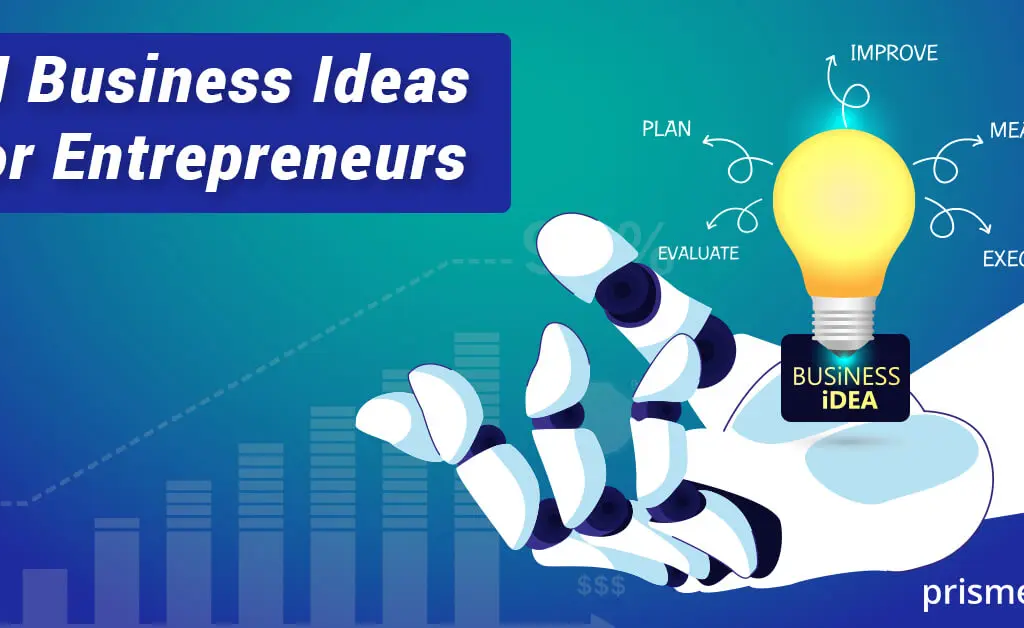Introduction: AI Isn’t Just for the Big Guys Anymore

Remember when starting a tech business meant you needed millions and a Silicon Valley address? Not anymore. With open-source tools, no-code platforms, and AI-as-a-Service, low-budget AI startups are now a real thing. In 2025, you don’t need deep pockets—just smart ideas and the right tools to launch your own AI-powered business from anywhere.
Whether you’re a freelancer, a student, or someone with zero tech background, there’s a lane for you in the AI gold rush. The best part? Many of these low-cost AI business models can be launched from your laptop, with little more than creativity and consistency.
Let’s dive into the smartest, leanest AI startup ideas that you can actually build without draining your bank account.
Why AI is the Smartest Bet Right Now

The Era of Everyday AI
AI is no longer some mysterious black box used only by tech giants. It’s in our phones, cars, emails, even grocery lists. And guess what? The demand for smarter, faster, cheaper AI tools is just heating up.
Future AI Trends = Big Opportunities

From AI tutors to smart legal assistants, the future AI trends are clear: automation, personalization, and accessibility. That means there’s room for niche players like you to build helpful tools with real impact.
1. AI Content Creation Services

What It Is:
Offer AI-powered blog writing, email generation, product descriptions, or social media captions for businesses using tools like ChatGPT, Jasper, or Copy.ai.
Why It Works:
Businesses want content. Lots of it. And fast. You can charge for speed, quality, and convenience—especially if you tailor content for specific industries.
2. Personalized Resume & Cover Letter Generator
Use Case:
Build a no-code website that uses AI to generate custom resumes and cover letters based on job listings.
How to Monetize:
Offer a freemium model—free templates, with a $10-$20 charge for premium versions or LinkedIn optimization.
3. AI-Powered Language Tutoring App
The Opportunity:
Combine speech recognition with language translation to help people learn languages on the go. Perfect for global learners and expats.
Tool Tip:
Use Whisper API (speech recognition) and ChatGPT to simulate conversations.
4. Niche Chatbots for Local Businesses
What You Do:
Develop pre-trained AI chatbots for dental clinics, salons, mechanics, or fitness coaches.
The Edge:
Focus on industries that don’t want to deal with tech. Sell the chatbot as a done-for-you customer service or booking solution.
5. Smart AI Legal Assistant for Freelancers
The Problem:
Freelancers and small business owners struggle with contracts and legal jargon.
The Solution:
Create an AI that helps users generate, review, and understand contracts—no law degree needed. This is huge in emerging markets with limited access to legal help.
6. AI Social Media Manager
Low-Cost, High-Demand:
Help small brands plan, schedule, and write social media content using AI tools like Publer, Predis, or Canva’s AI.
Monetization Idea:
Charge monthly packages ($50–$300) for content creation, posting, and engagement tracking.
7. AI Fitness & Nutrition Coach
What It Is:
Develop a virtual fitness coach that gives daily meal plans, workout suggestions, and tracks user goals.
Tools to Explore:
You can build this using ChatGPT for text-based coaching, combined with free databases of food/nutritional info.
8. Micro AI SaaS for Solopreneurs
Think Simple:
Don’t try to build the next OpenAI. Instead, build a mini AI tool that solves one specific pain point—like naming products, writing tweets, or summarizing Zoom calls.
Platform Tip:
Use Bubble, Glide, or Softr to build fast and cheap. No code needed.
9. AI for Real Estate Listings
The Idea:
Help real estate agents write better property descriptions, suggest staging tips, or predict pricing based on location data.
Business Model:
Charge per listing or offer monthly subscriptions for agents or agencies.
10. Virtual AI Tutor for School Kids
Why It Matters:
Parents want affordable learning support for kids. You can train an AI model to act as a tutor for specific subjects or grade levels.
Bonus Tip:
Gamify the experience with badges and feedback to keep kids engaged.
11. AI-Powered Market Research Reports
B2B Goldmine:
Offer AI-curated reports that help startups and small businesses understand their niche, competitors, and customer behavior.
Monetization:
Charge per report or monthly retainer fees for agencies and startups.
12. Voice-to-Text Transcription for Podcasts
The Use Case:
Podcasters need transcripts for SEO, accessibility, and content repurposing.
Low-Cost Execution:
Use Whisper or Otter.ai, and resell as a white-labeled transcription service.
13. AI Tools for Job Seekers
Build a Toolkit:
Bundle AI tools that help users find jobs, tailor resumes, prep for interviews, and even network with recruiters.
Bonus:
Add a job board for passive income.
14. AI-Enhanced E-Commerce Product Descriptions
The Niche:
Small e-commerce shops struggle to write SEO-friendly descriptions. Your AI service can help them shine and sell.
How You Win:
Offer bulk pricing, and include options for Etsy, Shopify, or Amazon formats.
15. AI Mental Wellness Companion
A Growing Need:
People want 24/7 emotional support, but therapy is expensive. An AI companion offering affirmations, journaling prompts, and meditative guidance can be life-changing.
Caution:
Be transparent—this is support, not a replacement for professional help.
How to Start Without Breaking the Bank
Start Small, Think Lean
Begin with an MVP. Use free AI tools like ChatGPT, Notion AI, Canva AI, or open-source models. Focus on solving one specific problem first.
Validate Before You Scale
Run surveys, talk to users, offer a free beta version. Building something people actually want is 10x more powerful than building something flashy.
Tools You Can Use for Cheap (or Free)
| Tool | Use Case |
|---|---|
| ChatGPT | Content, support, tutoring |
| Notion AI | Productivity, research |
| Canva | Social media and design |
| Tidio | AI chatbot for websites |
| Bubble | Build apps with no code |
| Zapier | Automate workflows |
| Typeform | Collect user data/surveys |
Marketing on a Budget
Use Social Proof
Share testimonials, before-and-afters, or user feedback on platforms like Twitter, Reddit, or LinkedIn.
Content is King
Start a blog, YouTube channel, or TikTok series showing behind-the-scenes. People love real, raw progress.
Mistakes to Avoid
- Building tech without solving a real problem. AI for the sake of AI doesn’t sell.
- Underpricing your service. AI adds speed and quality—charge for that value.
- Ignoring user feedback. If they’re not using it, it’s not working.
The Power of One Person and a Laptop
You don’t need a team of engineers or investors to win in AI. All you need is the internet, some curiosity, and a clear idea. The future AI trends aren’t just about billion-dollar startups. They’re about everyday people using smart tools to solve problems.
Conclusion: Your AI Empire Starts Here
AI is the new electricity—and everyone can plug in. Whether you’re into content, coaching, design, or data, there’s a low-budget AI startup idea with your name on it. Don’t wait for the perfect moment. Start small, learn fast, and build something real that solves a real problem.
Because in the future we’re heading into, those who build with AI won’t just survive—they’ll lead.
🔍 5 Unique FAQs on Low-Cost AI Business Models
1. Do I need to know how to code to start an AI business?
Not at all! Many platforms like Bubble, Softr, and Zapier let you build powerful tools without writing a single line of code.
2. Can I use free AI tools to start out?
Yes! Low-budget AI startups can kick off using free or affordable tools like ChatGPT (free tier), Canva, Notion AI, and OpenAI’s Whisper for transcription. Perfect for building your MVP without breaking the bank.
These Video Games Give You the Freedom to Do Almost Anything
Discover Your Ideal Game Genres: A Guide to Finding Your Perfect Game
3. What industries are easiest to break into with AI?
Content creation, education, small business automation, and freelance services are perfect entry points for low-budget AI startups—they’re in high demand and easy to break into.
4. How do I find paying clients for my AI service?
For most low-budget AI startups, the easiest way to land your first clients is through freelance platforms like Upwork and Fiverr, LinkedIn outreach, or even local businesses. Offer a free trial to gather early feedback and testimonials—it builds trust fast.
5. Are there grants for AI startups?
Yes! Many governments, accelerators, and NGOs offer funding and grants, especially for low-budget AI startups tackling real-world problems in health, education, and climate.


